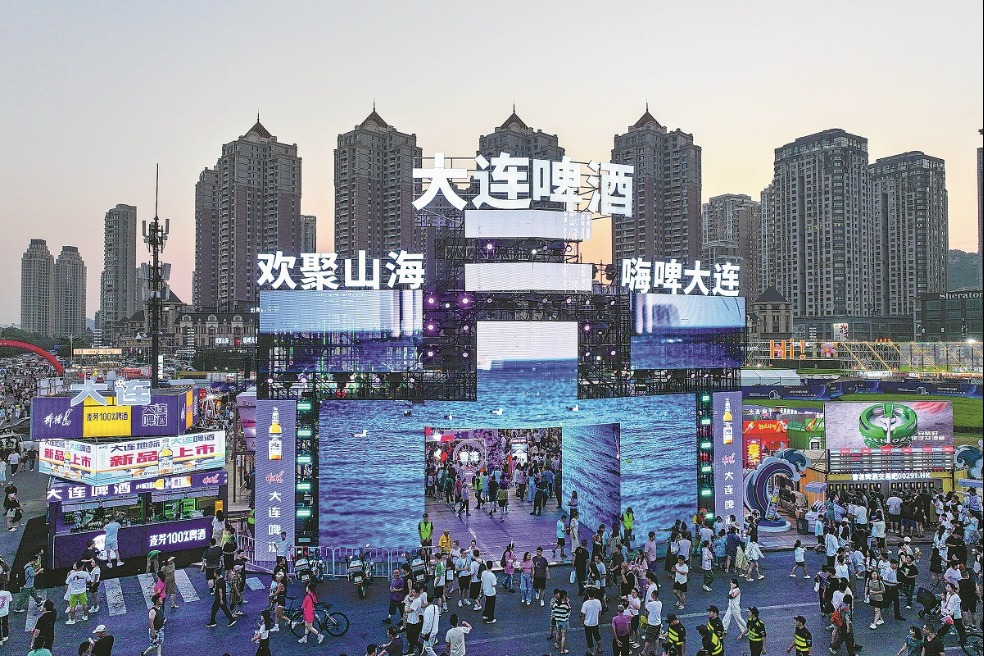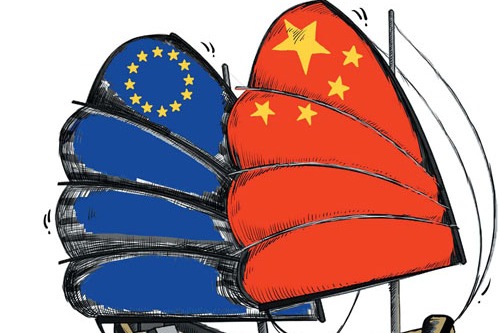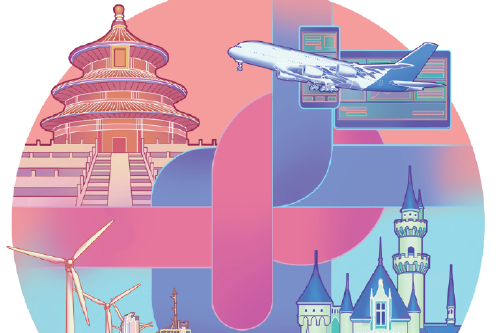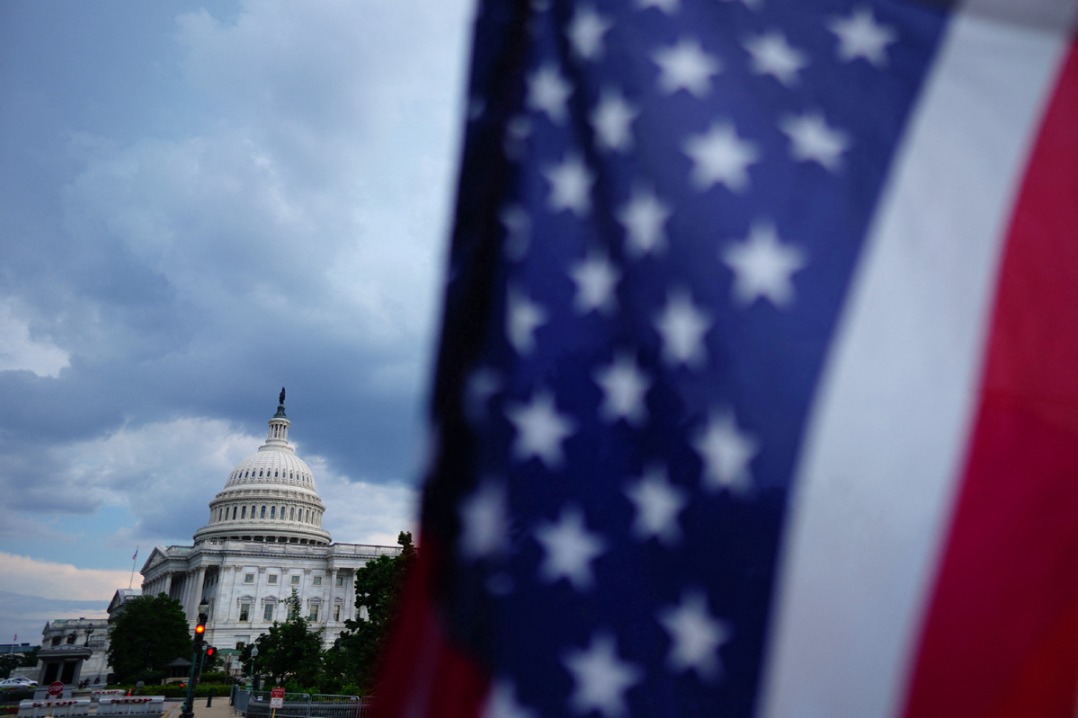Reshaping the global order
Multilateralism and shared prosperity set to define the new international governance system

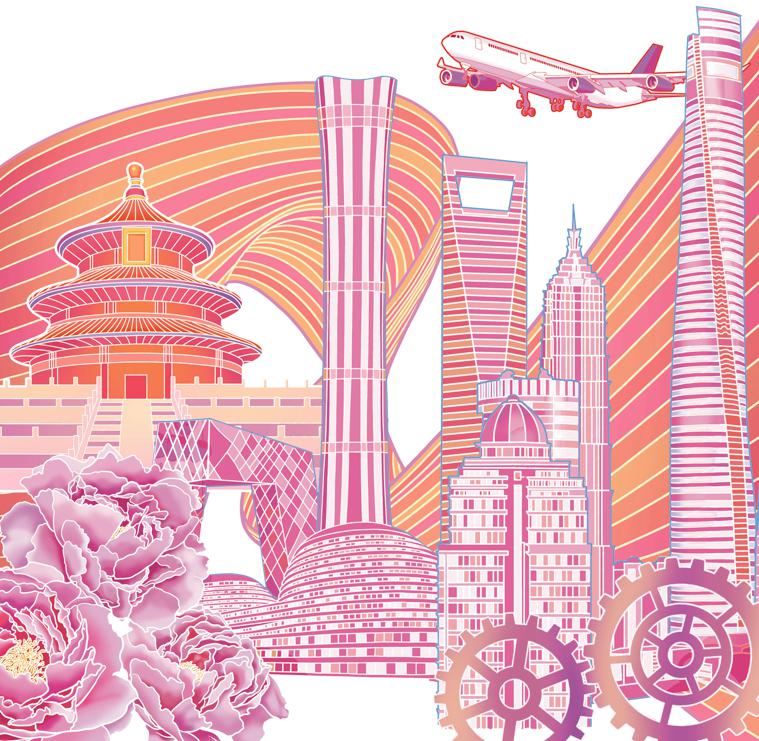
The founding of the United Nations 80 years ago was a remarkable event in human history. The UN aims to maintain international peace and security and develop friendly relations among nations based on respect for the principles of equal rights and the self-determination of peoples.
It was under the guidance of the international law based on the UN Charter that countries pursue their development within a global framework, and developing nations gained unprecedented opportunities for growth.
First, the post-World War II international order institutionalized international relations by establishing a series of global organizations, including the UN, where major issues can be discussed, and all member states enjoy equal rights in the General Assembly. The decision to create the UN was agreed upon by the leaders of the anti-fascist allies at the Yalta Conference in February 1945, setting the basic framework for the post-war international order.
Second, rules were set for behaviors of countries. Economic globalization increased interdependence among nations, necessitating common rules of behavior. International law was widely recognized and followed in the post-war era, with institutions such as the International Court of Justice playing a crucial role in resolving international disputes. Various international organizations emerged and took on the responsibility of shaping rules through negotiations, most notably the establishment of the World Trade Organization.
Third, the post-war international order led to the multipolarity of international politics. Although the Cold War era was characterized by the United States-Soviet Union bipolar structure, the rise of developing nations gradually fostered a multipolar trend in global politics, typified by the South-South cooperation and the Non-Aligned Movement.
Finally, the scope of international cooperation expanded. The active participation of countries in various forms of international collaboration proved critical in addressing complex global challenges such as environmental protection, climate change and the fight against terrorism.
The post-war international political order's primary objective is to prevent another world war and maintain universal and lasting peace and security, and the UN Security Council was formed to achieve this mission.
The post-war international economic order, which is closely linked to the political order, is structured around institutions such as the International Monetary Fund, the World Bank and the WTO. These major economic organizations are all specialized agencies of the UN system, demonstrating the close connection between political and economic orders.
To a certain extent, this framework has helped avert major crises. Even when global crises have occurred, they have been overcome in a short time through international cooperation rather than escalating into large-scale wars.
It should be noted that the post-war international order did not fully resolve the issues in global governance. Moreover, the Cold War between the US and the Soviet Union led to bloc confrontation, creating two parallel systems that divided the world and sharpened ideological antagonism.
The US-dominated global monetary and financial system, represented by the IMF and the World Bank, while stabilizing the post-war economic order and facilitating rapid growth in international trade, also led to the hegemony of the US dollar and the developed countries dominating the top of the global value chain, exacerbating the North-South divide and leaving developing nations perpetually confined to the lower tiers of the global industry and supply chains.
The post-war international system was shaped under US leadership, making it impossible to guarantee complete fairness and justice. Although the postwar international political order underlines respect for national sovereignty, political independence, non-interference in the internal affairs of other countries, and the right of all countries to independently choose their development paths and social systems, the Cold War, an era marked by US-Soviet Union rivalry for spheres of influence and the exports of competing social systems, profoundly shaped the evolution of international relations, leaving developing nations with the daunting task of safeguarding their sovereignty and independence.
After the Cold War, the world entered a new stage of "one superpower plus multiple powers", with economic globalization creating not only fresh development opportunities for all nations, but also greater challenges. A prominent feature of this period is that the unilateralist and protectionist policies of developed countries, particularly the US, have undermined normal international trade, while their hegemonic and bullying practices recklessly violate the principles enshrined in the UN Charter.
Today, the world is undergoing unprecedented transformations, which are compounded by regional conflicts and great-power rivalries. The world faces challenges of deficit in governance, trust, development and peace. International cooperation has been severely disrupted, with various disputes arising and the global governance system paralyzed.
Amid rapid digital and technological advancements and the emergence of new challenges, the formulation of new rules and institutional frameworks are lagging behind.
Following the end of the Cold War, the world moved beyond bipolar confrontation and witnessed accelerated globalization and a shift to multipolarity. However, escalating contradictions and conflicts have ushered in a new era of turbulence and transformation. The authority of the UN has been disregarded by some developed nations, while geopolitical rivalries among major powers continue to intensify. The 19th-century power politics and the law of the jungle have once again been embraced by certain big powers.
Developing countries aspire for a more equitable and just international order, yet they face tremendous difficulties and obstacles. The outbreak of the Ukraine crisis and the ensuing sanctions and counter-sanctions between the West and Russia have severely disrupted the existing international economic order.
The US, under President Donald Trump, has abandoned the fundamental norms of the postwar international order, and shifted its focus to the "America First" doctrine. By launching tariff wars and trade wars, it is inflicting serious negative impacts on the global economic order.
In this context, there is an urgent need to establish a new global governance paradigm — one that is more inclusive, balanced and capable of addressing the challenges of the times while upholding the principles of multilateralism and shared prosperity.
To this end, China has proposed a vision of global governance based on extensive consultation, joint contribution and shared benefits, which builds on the Five Principles of Peaceful Coexistence adopted at the Bandung Conference 70 years ago. China's vision of global governance aims to build open and cooperative relationships in which all countries can participate equally, leverage their strengths and achieve common development.
At present, countries around the world need to enhance their rules awareness and uphold true multilateralism more than ever before.
The hegemonic actions of a few countries have aroused indignation among the international community. Through mechanisms and platforms such as the UN, BRICS and the Shanghai Cooperation Organization, China, Russia and other countries are jointly promoting the democratization of international relations and leading reform of the global governance system, advocating that international rules should be formulated jointly by all countries and opposing double standards.
Regarding the current isolation and fragmentation in the global governance system, China is seeking to advance Belt and Road cooperation and foster a community with a shared future for humanity. It advocates broader participation in the global economic, security and digital governance by more entities, including countries, local governments, financial institutions, multinational corporations and international organizations, thereby creating synergy to improve the global governance system and explore new paths for the progress.
The author is director of the Institute of Russian, Eastern European and Central Asian Studies at the Chinese Academy of Social Sciences. The author contributed this article to China Watch, a think tank powered by China Daily. The views do not necessarily reflect those of China Daily.
Contact the editor at editor@chinawatch.cn.
















